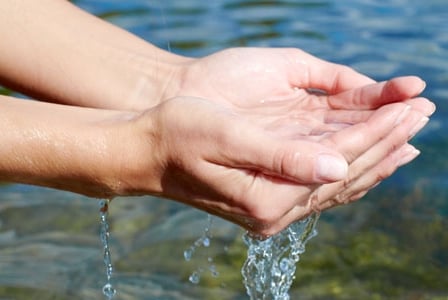
March 22 is World Water Day – an event to draw attention to our excessive use of fresh water and to advocate for sustainable practices.
“The world is thirsty because we are hungry,” says the United Nations’ (UN) World Water Day website. It’s a scary thought, but it’s true: most of the water consumed by those in developed countries (such as us in Canada and the United States) is consumed indirectly—for example, cows drink water, and we eat the beef. According to the UN, “producing 1 kilo of beef for example consumes 15,000 litres of water while 1 kilo of wheat ’drinks up’ 1,500 litres.” That’s a big difference!
There are now 7 billion people sharing this planet (a number that will continue to grow), so being careful with our use of resources such as water is increasingly crucial.
World Water Day
March 22, 2012 is World Water Day—an international event coordinated by the Food and Agriculture Organization of the United Nations (FAO) to draw attention to our excessive use of fresh water and to advocate for sustainable freshwater management practices. This year’s theme is Water and Food Security.
Canada Water Week
Coincidentally (or maybe not), it’s also Canada Water Week. According to Canada Water Week’s website, “the average Canadian consumes nearly 6,400 litres of water every day.” Again, much of this water is consumed indirectly, embedded in foods we eat.
How to reduce your water consumption
Reduce your indirect consumption of water by eating mainly plant-based foods. Check out our Meatless Monday blog post series and pledge to eat meat-free once a week (or more). Make sure to check back every Monday for a delicious meat-free dinner recipe.
The UN also suggests that individuals work to reduce food waste.
More about water quality issues in Canada
Learn the answers to these questions about the issues facing Canadians in regard to safe drinking water.
- How does Canada’s drinking water rate by province?
- Why should you skip bottled water next time you head to the gym—and every day, for that matter?
- How clean are our Great Lakes?
- How can you avoid troubled drinking water, and what are the best filtration options?
- How does Canada’s treatment of sewage waste stack up?
- Will a new oil extraction method called hydraulic fracturing (“fracking”) harm Canada’s groundwater?



